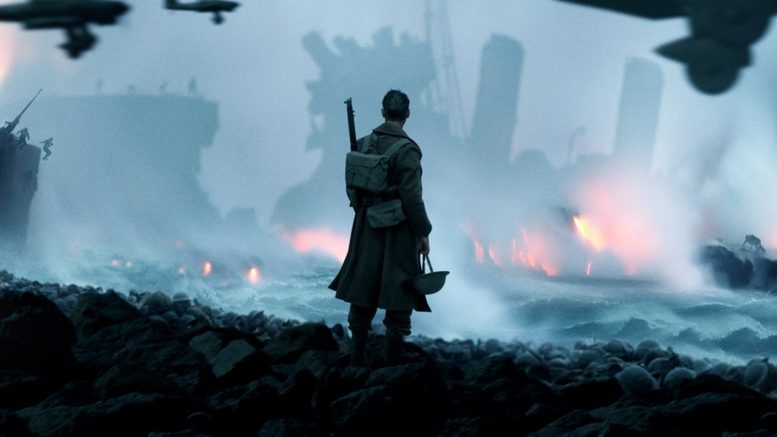By John Arnold
Nineteen years after releasing his first film, Following, Christopher Nolan produced his most complete picture yet. Nolan’s World War II epic, Dunkirk, follows British and French forces as they evacuate the beaches of Northern France. Cornered in the English Channel by Nazi Germany, Allied troops must wait for the British Navy and civilian boats to rescue them.
The film walks a different path than most war movies; it shows the pauses in action. Nolan uses the silence to create suspense to show that war is more than gory battles and heroic speeches. Unlike Steven Spielberg’s Saving Private Ryan, which won numerous Academy Awards and Golden Globe awards in 1999, Dunkirk is able to show the same amount of warfare, without the gore, the same amount of human connection between soldiers, and step away from tugging on our hearts. One of the few criticisms Saving Private Ryan and HBO mini series Band of Brothers–a story about an American regiment at the end of WWII–received was that it was too emotional or too “Hollywood.” Nolan must feel the same way because there is nearly no sentiment in the picture.
Additionally, the silence heard throughout the movie is also a result of the dialogue, or lack thereof. Dunkirk is a film about violence, terror, and the human psyche. So, Nolan uses the lack of speech and sheer violence to show audiences how terrifying war is and how it affects a soldier’s personality; as William T. Sherman, Union Army general during the Civil War, once said, “War is hell.”
Another aspect of Dunkirk that separates it from Nolan’s other films–such as Inception, The Dark Knight, and Interstellar–is that it’s a true story, so there is very little creative freedom in the events. However, the story does allow the narrator, in this case Nolan, to tell it in a unique way. Nolan decided to tell the remarkable epic in three phases: the land (lasting a week), the sea (lasting a day), and the air (lasting an hour). “The land” followed a young British soldier, Tommy, in his attempt to get off the beaches of Dunkirk, France. “The sea” detailed a civilian boat called upon by the British Navy to rescue soldiers across the English Channel and “the air” told of two British fighter pilots defending ground troops from the German air force. The unique format of the film, while sometimes Gordian, actually is a nod to the three main theaters of war. The complexity of the story is also a reminder of how intricate war really is.
Christopher Nolan’s Dunkirk is a monumental achievement for future war films, but much more importantly for Hollywood and the movie industry. In recent years, companies such as Netflix and Hulu have become increasingly important and powerful forces in movie and television show production. Many of the industry’s top movies and shows in recent years have been created by non-Hollywood organizations. But Nolan’s Dunkirk helps reestablish Hollywood as the premier place for movie making and gives audiences a masterful approach to combat and human sacrifice.

